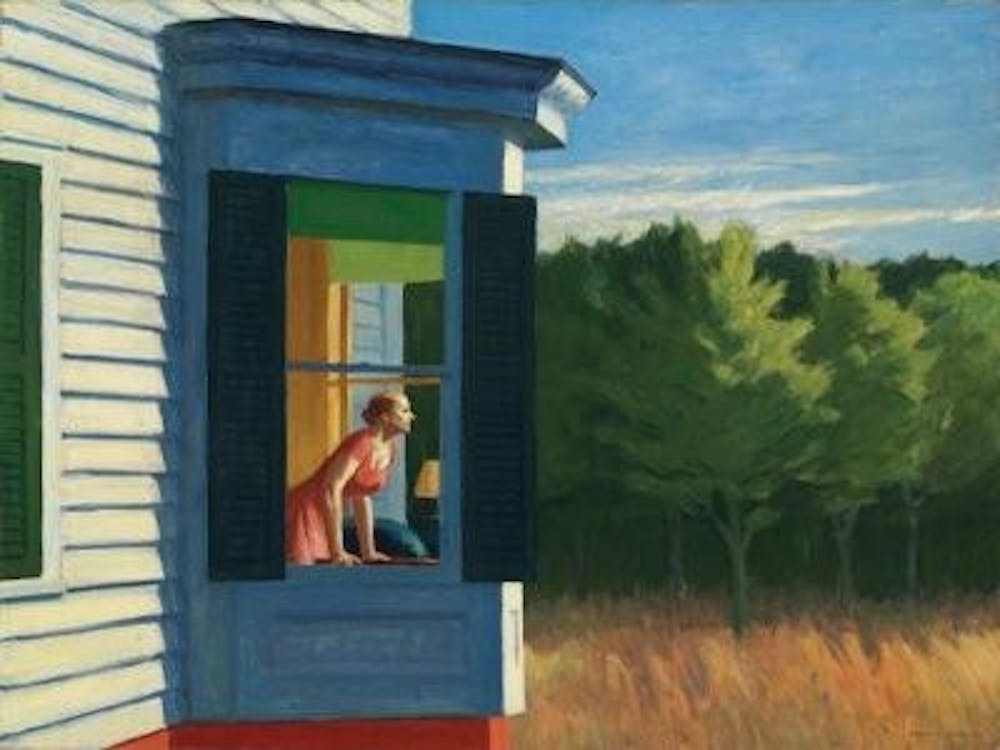Being a first-year student is intimidating. From new locations to new faces, the introduction to Duke can be jarring. This year, feelings of isolation and confusion among new students are amplified given virtual classes and social-distancing measures. Thankfully, students are being afforded opportunities to connect and learn from each other through the new “Exploring Self and Community in Dark Times” series.
Focused on humanistic modes of thinking, the program debuted this year as a set of small group discussions. These discussions are led by volunteer faculty members from a variety of disciplines. While the topics are varied, the series focuses on themes of isolation, reflection and community. Students are sent a short piece of work to read or examine a week before their session, which they will then discuss within their group. At the start of each hour-long discussion, a leading faculty member offers a short 15-20 minute presentation.
Graduate Dean for Trinity College Neil McWilliam explained how and why the program was created.
“Towards the end of spring, an initiative was underway to create programs that would introduce first-years to the humanities at broad and appealing points of interest. COVID forced changes to our initial plans. We decided upon a remote learning format in May and began contacting professors to gauge interest,” McWilliam said. "We wanted to avoid something narrowly focused on COVID, but that still dealt with themes of isolation and reflection using broad cultural perspectives.”
One can certainly see the breadth of the program just from the list of subjects offered — discussion topics range from Kafka to Freud to East Asian food cultures. Currently, the program has a target audience of freshmen and sophomores. Juniors and seniors are allowed to participate, but McWilliam noted that the program was specifically created with younger students in mind.
“This program hopes to give a sense of community to younger students that is likely lacking given the COVID situation. Further, there are fewer chances to engage with intellectual discussion in this type of format than previously,” McWilliam said.
Additionally, McWilliam hopes that younger students find the program to be an engaging and exciting way to explore what the humanities have to offer as they decide on their ultimate courses of study.
Dr. Kata Gellen of the German Department recently ran one of the sessions, choosing to focus on Kafka’s “The Burrow” (1923).
“I wanted to become involved as soon as I received the invitation, especially as I am on leave this semester and miss interacting with students,” Gellen said. “It was valuable to be able to offer an event like this when chances for discussion are limited and scarce.”
Dr. Gellen went on to describe the importance of humanistic discussion and thinking to the lives of students.
“I think it is important to showcase the relevance of the humanities for our lives," Gellen said. "They can teach us how to live life in a meaningful way and reflect thoughtfully on our circumstances, in particular when those circumstances prove overwhelming and alienating. The discussions also enable faculty to meet new students. On a personal level, I was delighted to hear the fresh insights that my group of undergraduates brought to this work.”
After taking part in the Kafka session myself, and I can attest to the unique experience the program offers. Few other programs on campus currently push students to expand their reading lists, even if the selections are short. The students present each had engaging ideas and perspectives on Kafka’s story, allowing the group to explore many interpretations of a single story. Overall, the process was educational and enjoyable, allowing students to meet others interested in similar questions and themes, despite the distance.
The Self and Community Series will continue providing a forum for younger students to explore, meet new people and engage in intellectual discussion in the hope of bringing to light the value of humanistic perspectives in difficult times.
Students can register for the sessions online at the Self and Community Series online through the Trinity website. Texts are sent out one week in advance of the meeting. Sessions are held on Mondays at 7p.m. EST through Zoom and last for one hour.
Correction: a previous version of this article incorrectly stated that the Self and Community series event takes place Mondays at 6 p.m. It has been updated to reflect that the series starts at 7 p.m. The Chronicle regrets this error.
Get The Chronicle straight to your inbox
Signup for our weekly newsletter. Cancel at any time.

